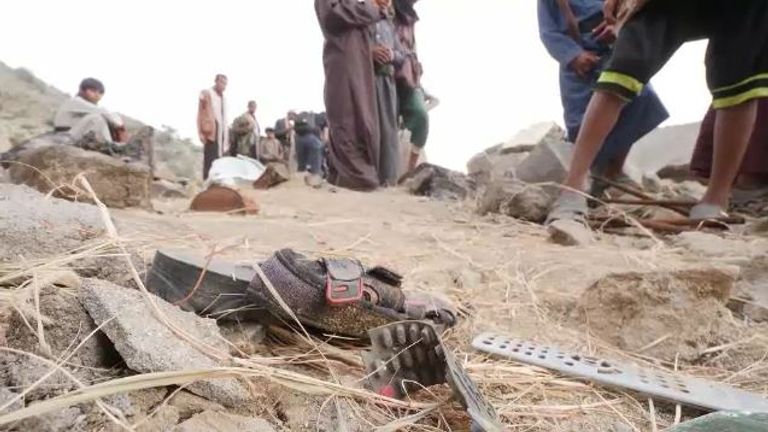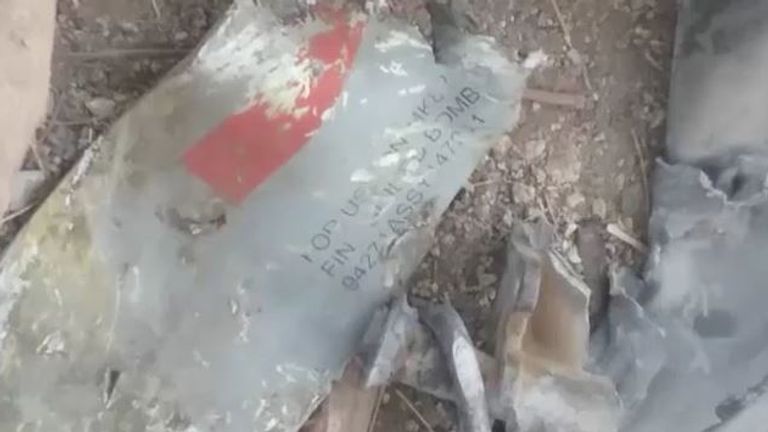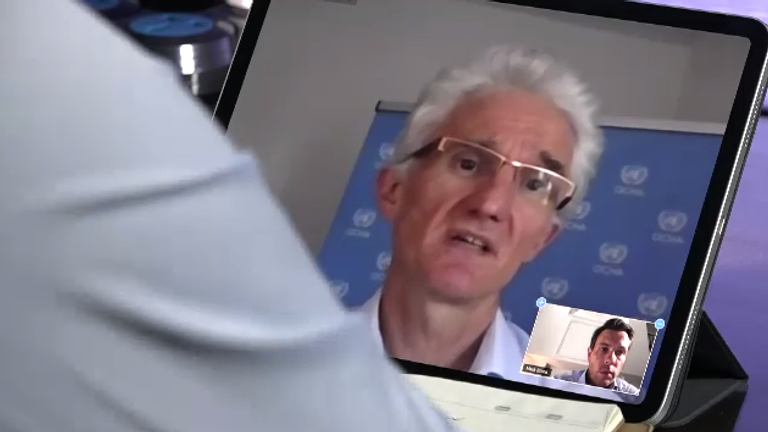“There are no heroes in Yemen, just criminals and victims.”
Those are the words of a human rights investigator, a petite woman who has devoted her life to fighting for the victims and tracking down the criminals.
There are far too many of both in this country.
The victims are the millions of ordinary Yemenis caught in the midst of a protracted proxy war which has brought the country to its knees and turned it into the world’s biggest humanitarian disaster.
The lack of easy access to the country for journalists and international monitors means many Yemenis feel, as one doctor put it, that “we are screaming in pain, but no one is hearing”.
But Radhya Al Mutawakel and her team who make up the Mwatana For Human Rights group are resolute in their determination to try to get justice for the tens of thousands of suffering civilians, for which there is no escape.
They are building up a “dirty dossier”, logging the mountain of human rights abuses and war crimes being committed by all those involved in this conflict. Their work is already being used to file prosecutions – and they’re not fussy about where or who pursues these legal cases.
The International Criminal Court is taking up some of them and cases are being considered in a range of countries, including Britain and America – two of the countries supporting the Saudi-led coalition which is backing the recognised Yemeni government against the Houthi rebels.
We’re shown the library of files documenting the evidence that the team are collating in their office in the Yemeni capital of Sana’a.
Radhya and her husband, Abdulrasheed Al-Faqih run Mwatana, together with an equally dedicated team of truth-seekers.
Both of them have been arrested, detained and threatened by both sides in the conflict because of their work.
Abdulrasheed has been beaten too and both have made tremendous personal sacrifices because of their commitment to the job.
“We decided not to have a family,” says Radhya. “How could we bring a baby into this…? I couldn’t do it.”
The files bulging with evidence of war crimes against the parties in the war made the decision an easy one in the end. They have collected signed witness statements, photographs, bomb fragments and satellite imagery for more than 500 different Coalition attacks on civilian targets such as hospitals, schools, health facilities and homes.
“There is a pattern here,” says Radhya, “They cannot all be accidents. The challenge is collecting enough evidence for an international court of law. We corroborate everything two, three, four times… as much as we can. And we send our field researchers out to the site of the attack as soon as we hear about it.
“The huge gap when it comes to Yemen is when it comes to accountability,’ Radhya adds. “So the parties to the conflict: they trust in impunity… they act as if they will never be held accountable.” She and her team aim to change all that.
Their work is likely to send a chill down the spine of all those involved in the war chain including those nations who are supporting the perpetuation of this conflict. The Mwatana team is trying to ensure even the ground floor worker is convinced they have a responsibility.
Their intention is to ensure politicians, civil servants and other decision-makers, but also arms manufacturers and suppliers from all the Coalition countries, know that they could find themselves in court answering legal questions about their individual role in the catastrophe which is Yemen.
Right now they believe they have five different attacks on civilian targets in Yemen which directly link back to British involvement or military arsenal.
Radhya’s colleague, Ali Jameel, who is a researcher, explains: “People who are in authority in the UK and could have stopped this from happening and didn’t, should take their responsibility and they should stand in front of a court, right next to the victims who were injured or killed.”
The Sky News team (of Middle East Editor Zein Jafar, producer Ahmed Baider and cameraman Kevin Sheppard) travelled hundreds of kilometres and several hours, along dry river beds and up rocky mountain paths to reach the remote village community of Washah in Hajjah Governorate to investigate for ourselves the site of one massacre.
We saw the rubble of a family home which neighbours told us had been hit by a missile dropped by a jet. We spoke to dozens of eye witnesses and saw children’s toys and clothing strewn amongst the debris.
This is a poor community with no running water or electricity. Inside the home, the women and children of the Mujali family were gathering for lunch. The bomb killed nine people instantly – six of them children.
We found shrapnel from the bomb still littering the site. Neighbours and relatives who immediately gathered on our arrival showed us pictures they took on their telephones immediately after the explosion.
Many of them were the blackened and grubby faces of the dead children, many without limbs, some barely recognisable as humans. They also had photos of bomb fragments – with identifying marks.
Several weapons experts we consulted told us the fragments seem to be part of a GBU-12, 500lb fin-guided bomb, manufactured in America.
A Coalition spokesman said they were investigating whether this was an “accidental loss of civilian life” whilst targeting Houthi leaders and fighters. But this is a poor farming community, and there are no adult men amongst the dead or injured.
But as Radhya explained, there is no party to this conflict with clean hands. The Houthi rebels too are accused by the United Nations of a string of human rights abuses: of indiscriminate shelling, of recruiting children into the conflict and of running secret prisons where torture is rampant.
When we questioned one of the key Houthi rebel leaders, the former president of the Revolutionary Council, Mohammed Ali Al-Houthi, he brushed aside the accusations. “These are made up by our enemies,” he told us.
He listed a litany of war crimes committed by the Coalition – including Britain – and took us to a bombed bridge. “These countries are committing hundreds of attacks against us Yemenis. Any deaths by us are accidents and very small in number by comparison.”
That, insists Mwatana, is irrelevant. It’s a bit like suggesting you’re only a little bit pregnant, Radhya told us. “A war crime is a war crime. And everyone who commits them needs to be held to account.”
We travelled hours and hours through multiple armed checkpoints to see both sides of this conflict. In the government-controlled areas of Taiz, one of the worst-affected cities by this war, they have become shockingly inured to this daily tragedy.
The city, which is the third largest in Yemen, is still split with different areas controlled by the opposing sides. The Houthis are regularly accused of shelling the civilians in the government-controlled areas – including the city’s main prison which is situated near the dividing lines.
The rebels are also accused by the United Nations of hiding mines in and around the homes they are forced to retreat from.
We managed to secure permission to go inside Taiz prison and spoke to one young survivor whose mother was killed in the shelling of the jail. She is coping with the trauma of losing her mother alongside the agony of being in the prison in the first place.
“My whole family were thrown in here. Until now we have not been told why and have never been to court,” she told us.
She’s still grief-stricken by the brutal death of her mother. “It was carnage,” she told us weeping. “Everyone who died was in pieces.”
A new centre for the war wounded has opened in the city to cope with the hundreds of amputees who are losing limbs through mines. In just one family alone, three of the women have lost limbs after stepping on buried mines left behind in their homes by the retreating Houthi fighters.
“Many mines are there still,” the Centre’s Dr Mansour Al Wazi said. The Centre has already fitted 800 adults and children with prosthetic limbs and the expectation is that there will be many more in the coming weeks, months, maybe years.
“We cannot say the exact number,” he said. “But there are a lot of mines out there and we’re expecting a lot more patients.”
Hundreds, I ask? There’s a pause. Thousands? I say. There’s another short pause from the doctor.
“Maybe thousands,” he says.





